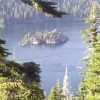Copyright Infringements
I noticed a Hubpage which suggested ripping off original content and putting it on a blog with adsense to make money. It suggested that you could use the same method to make the content for a hubpage. I know that Google will ban adsense accounts for these copyright infringements. They have a procedure for reporting these pirates and it is very useful to know about.
Send the username to team@hubpages.com and I'm sure they will take care of it.
Obviously he doesn't practice what he preaches. I easily found that his two previous hubs were copied from other sources.
If you are refering to the material I've published as Wilma Proops - it is all my original work. The rules here state you can publish anything as long as you are the original writer. I have published most articles here on Triond and Xomba previously. Only Triond insists that the articles you publish there haven't been published anywhere else. If you are refering to me, you "easily found" nothing of the sort. I practice what I preach and I speak up when wrongly attacked.
No...I was talking about the person you mentioned.
OMG... I'm sorry! I completely went off on one. In mitigation sleep deprivation and displacement activities could be offered but really it's me being over-reactionary. I apologise unreservedly.
When I use somebody else's text, I give the author and publication credit. I have never used any text without crediting the source. None of my sources has ever objected. I think many publications are coming to recognize the value to them of having bits and pieces of their publications trickling into Cyberspace. However, I wonder about images/photographs. I use a lot of my own pictures, but I also sometimes grab images from Google Images to illustrate the text of my Hubs. The photo upload feature cautions us not to upload images that "you don't have the right to use." That raises the question how does one know whether or not he has the right to use an image? I've been operating on the assumption that any of the unprotected images on Google are fair game. It seems to me that the owner of the image would have a legal duty to take steps to protect his image or at least inform the viewer that permission is required to use the image. Apparently the law on this, as on so many issues, isn't very clear. Any ideas, comments? [I have never received any objections from anyone to any image that I've used.]
According to international copyright laws and Google you cannot use anyone's text without their permission. You can be prosecuted for doing so and if you are using the content you've stolen to generate adsense Google will suspend you if you are reported. (The procedure is you write to or fax google, make a statement, tell them where your pirated text is, then Google contacts the offender about their infringement). I think this is fair. Why should someone study subjects for years and then take hours writing articles for someone to rip it off in seconds?
I think a Moderator should comment on thisGiving the person's name and the publication still does NOT give one the right to use their work without their permission.
The fair use applies to small quotes, but you cannot "reprint" the article without permission from the person that owns the rights. This applies also to art and photos. Lyrics and poems are even stricter, and copying ANY part of them is copyright infringement.
If you didn't take the picture, write the work, or create the art you do not have the right to copy without permission. Here is a link that may help-
http://www.writersbbs.com/html/copyright.htm
Ralf I only ever use images from flickr which have a creative commons license and acknoledge teh photo credit I don't think images on google are available: Ive never seen anything that said they were.
Wilma I have reported several people for using Adsense on illegal copies of my work: all I get is please send us a fax with all this legal mumble jumble and hire a lawyer! I, like most people these days dont have a fax and I certainly am not paying the $5 or so it costs to send an international fax for something that wlll no doubt be ignored. Its th same thing with blogger blogs too - it really pisses me off because Adsense will ban you for so called click fraud just like that but they make no effort to protect authors rightsGoogle is using the images. I haven't seen anything on Google saying that the images are available either. But I haven't seen any blanket indication that they aren't either. And Google certainly makes a lot of images readily available. And many people are making use of them including Google. The "owners" of the images usually aren't identified and there are no procedures available for requesting permission to use the images. I repeat, it strikes me that it should be incumbent on the photographer or owner of the copyright to take steps to protect his images. Many photographers do this. It's not hard to do. I suspect that many of the publications from which Google gets the images view themselves as being in the business of selling publications, paper or digital, and not in the business of selling images as are photographic artists who protect the images on their websites. Also, it may be that some of the publications have come to believe that they benefit from having their material virally spread around. Or perhaps they can't be bothered with trying to track down unauthorized use of their material. The definition of fair use is not crystal clear. Copying somebody's entire work without attribution is plagiarism. Copying a portion of it with attribution is, as I understand it, fair use. Linking an article is another issue. Apparently that's not considered a violation of copyright??? There sure is a whole lotta linkin' goin' on! [I don't know the answers to these questions. Perhaps some of them are yet to be resolved in the courts.???]
Google Image Search displays a small thumbnail of the image (which I imagine they would claim is a "fair use"), and identifies both visually and by hyperlink the site from which it came. Further, to the best of my knowledge they don't run any ads on image searches -- and therefore aren't profiting from the use of those images, at least not directly. They also have made it relatively easy for a websites to remove all or some of their images from google image search. I imagine most sites don't remove their images, because they feel like they benefit more from the traffic that comes from google image search than they lose by people stealing their images.
It's relatively easy to either watermark, or only provide small thumbnails of electronic images if you are a photographer publishing a large catalog of stock photos for sale. However, if you are simply an online content publisher, for example a cartoonist or a newspaper -- it would significantly degrade your product if you only used tiny thumbnails or had large watermarks splashed across every image. That doesn't mean you don't hold the copyright to the images.
Yes, I suppose you can choose to use someone's copyrighted work and hope they don't find out or mind. But, by doing so you are walking a rather tenuous legal and moral line. Most websites publish some kind of contact information, why not take 5 minutes to email them and ask if they mind if you use their image or text instead of just taking it?"Google displays a small thumbnail." True, but you can get a big full resolution image simply by clicking on the thumbnail. I suspect Google uses thumbnails simply bedause they take up less room on the screen which allows people to sort through them quicker. Although Google isn['t putting ads on the pages with Google Images, they aren't providing Google images out of the kindness of their hearts.
Re: linking v. copying or pasting. Linking isn't the same as copying or pasting, but the result is quite similar. The linker's audience is given access to the copyrighted material pretty much the same as if it had been cut and pasted or typed over. Is it not true that if on-line publications wanted to prevent cutting and pasting or linking for that matter technology is available for them to do so. We should not confuse unattributed copying which is plagiarism with fair use of portions of published material or linking to the material. Most authors are quite happy to have their material cited, quoted and linked. That widens their audience and influence and attracts readers or viewers to their work.When you click an image on google image search, you are viewing the site where google found the image in the first place, along with that sites ads and whatever other content was on that page. Since that view comes directly from that sites web server, they could pull the image any time they wanted, or remove or modify the entire surrounding page if the liked. Image search on Google really isn't much different than web search -- they provide you a small glimpse of what content you can expect (a few sentences or a small thumbnail), and a link to the page where you can find it. That's a rather different situation than making a copy of someone's full size image and serving it from your own web server, with your content and ads -- whether you link back or acknowledge the source in some other way or not.
Thanks. That hadn't occurred to me. I wonder if there could be a technical solution that would be fair to everyone?
One other point: The site to which Google links the thumbnail may or may not have legally acquired the rights to use the image. The New York Times and other publications nearly always legally acquire the rights to the images they use. But I suspect that's not true of plenty of other print and on-line publications. The site that Google links to it's thumbnail image may be five times removed from the publication and artist that originated the image. That's apparent from perusing Google images because you find the same image linked to lots of different sites with hardly a clue to where the image originated, who owns the copyright or who the artist/photographer is. Feel free to correct me if I'm wrong. I frequently am!
For AdSense you can fax it or send it by regular mail, and you really don't need a lawyer. Basically all you have to do is state that the content is yours in legal terms and identify the infringing pages. I don't have a service to recommend, but there are lots of relatively inexpensive ways to send faxes online without owning a fax machine, and international postal rates aren't that high either (certainly less than $5). I can assure you that properly filed DMCA complaints will be responded to swiftly by Google -- since if they didn't they'd risk losing their safe harbor protection.
Put yourself in Google's position -- there is no reliable way for a third party to determine the true copyright owner of online content. If they made it really easy to file a complaint more legitimate complaints would be responded to, but you'd also have people filing false complaints just trying to damage their competitors. For instance, imagine someone ripped of your writing and filed a complaint against your page claiming that their work was the original -- I'm sure it's happened many times.
You might argue that they should accept complaints by email, but free untraceable email accounts can be had so easily that it would actually tilt the balance in favor of he spammers. Placing some small cost on filing a complaint helps reduce illegitimate complaints. Of course, there also must be a way for false claims or counter claims to be adjudicated, and like it or not, ultimately that must be in the court system. The DMCA system is simply a pragmatic expedient that protects legitimate copyright holders reasonably well, and keeps things out of court for the most part (which is good for everyone).
Ralph, we've had this conversation before if you recall.
The reason none of the original photographers haven't objected to your use of images is simple - they don't know you're doing it.
As I'm sure you know, it's hard enough to find out whether someone has ripped off your articles somewhere on the net - it is possible but it's a never-ending job, so I suspect most people only bother to check occasionally. It's almost impossible to check whether someone is using one of your photos without permission - how do you search for it?
The copyright rules are quite clear, as far as I've been able to work out. ALL photographs on Google are copyright unless they specifically say otherwise. Most photographs which aren't copyright still require you to credit the photographer.
What muddies the waters is that you'll find hundreds of copies of copyrighted photos all over the internet, because it's so easy to do, and most people have no clue about copyright (or don't care). Whether you do the same is a matter of your personal viewpoint.
I take a "do as you would be done by" approach. I wouldn't like it if someone copied my article and used it on their site, unless they included a hyperlink back to my other work. So I don't do it to other people.
As you said, most publishers and photographers would probably be happy if you copied their work with a hyperlink to the original, regardless of copyright considerations - because it's extra link juice for them. Just mentioning the source in the text or caption isn't enough, though.Marisa, I responded to lissie before seeing your comment. I'm not a lawyer or especially knowledgeable about copyright law. However, I have read a bit about it, and my impression is that copyright law has become far from clear since the beginning of the digital age. It appears to me to be in a state of flux or development.
As I commented below, Google images is using and making plenty of money I suspect by publishing Google images and spreading them all around the world. I don't know where Google gets the images and whether they pay anybody for their use or get permission to publish them. I haven't seen any rules stated by Google on the use of the images that appear on their site. Individual photographers should be credited when their work is used. However, the photographers on most of the Google images aren't identified. I take a lot of pictures and sell a few once in a while. Most publications give me a photo credit which I appreciate even if they don't pay me. Occasionally I see my photos used without a credit. In those cases I assume that they simply didn't know who took the picture. If I were serious about selling pictures I would establish a website and clearly state the terms of use for my pictures and mark the pictures digitally so that they couldn't be used without my permission. That's what most professional photographers do. Others are under contracts of some kind giving the copyrights to the publications for which they work. In those cases the publications are free to take whatever action they wish, if any, to protect their copyrights. Again, I don't pretend to know much about this subject and am interested in comments and criticism. A few pictures do add a lot to a hub or other publications.
- shinujohn2008posted 17 years ago
0
I usually contact webmasters of sites using contact form and seek their permission to use their Photos. The reply mail i get from them is saved in my mail box as proof.
And as far as my experience most sites have not objected the use of their photos in other sites. They only request not to remove their site name which is water marked on the photo, as they believe many people will visit their site by typing the site name in the address bar and give them more traffic than any other advertising can give. Ralph, as Paul pointed out, Google isn't "using" any images. They are simply providing a service whereby users can find sites that have relevant images.
When someone searches Google and finds your article, you don't say that Google is "using" your article - it is just pointing to it. Exactly as the Google image search points to someone's photo.
Google can't make a judgment on whether the site hosting that photo has a right to it or not. And here's where you and I differ.
You seem to be saying, if everybody else does it, then it must be OK. There are lots of situations where that argument doesn't work - for instance, just because there are dozens of MacDonalds wrappers and coke cans littering the street, I don't assume it's OK for me to do it too. And in this case, because I'm a creative artist, I think I owe it to other creative artists to behave as I'd want them to behave to me.The question of whether Google is infringing copyright by indexing images and creating thumbnails of them is far from settled. A court in Germany just found that Google is infringing copoyright. See: http://arstechnica.com/news.ars/post/20 … right.html
Google is appealing.
Based on what I know about copyright law, Google might be saved from being sued by the "fair use doctrine" but the extent of its copying (after all it has indexed and made copies of every image out there and stored it in its cache, and then converted these images into small thumbnails) suggests that this is not just incidental fair use of copyrighted material. I would not be surprised to see the image search feature disappear at some point.
As for whether the images appearing on Google are fair game because the authors of the websites have not taken precautions to prevent indexing by Google, I have to disagree. All images are copyrighted unless expressly stated otherwise, or unless you can show that the copyright has lapsed somehow (for example if a certain number of years have passed since the author died, etc). Just because Google has made copies of someone's images does not mean that everyone else can now copy those images and use them. Attributing the source of the image does not mean it is not copyright infringement, either.
It is plainly obvious that many hubs here infringe image copyrights. The most obvious offenders are galleries of celebrity pictures. Most of these pictures were taken by professional paparazzi and the copyrights are likely owned by agencies that sell the reprint rights to magazines and websites. They would most certainly expect and require payment for any use of these pictures on any site, and I am sure that most people using them on hubpages and elsewhere have not paid for licensing rights. The only reason nothing happens is that the internet is a big place and it is difficult to track down all copies of your photos, especially if the person using them without your permission changes the file name.
However, you should be aware that there are websites out there that specialize in tracking down copyright infringements, for a cut of the fees they collect: http://photography.about.com/od/copyrig … cScout.htm
Here is a page with good links to articles explaining what you can a cannot do with other people's images: http://photography.about.com/od/copyrig … ources.htmWithout Search engines like Google how can any website or business survive ?
It is certainly an interesting question. The decision may shake up the search engine world.
I agree that having people find your images is usually a good thing. But that doesn't mean that Google's method of indexing the images and displaying the results is correct: instead of creating thumbnails they could create text links to the descriptions of images and when you click on the link it would take you to the original site. The problem is that Google has actually copied each image that appears in its search engine, and then modified it to create a thumbnail. Clearly it has made copies, which is the essence of copyright infringement. It remains to be seen whether this copying is allowed under the fair use doctrine.
Another problem with Google's image search is that it displays the original page in a frame window below the thumbnail. I am aware of cases where people who created pages which displayed other people's websites in a frame were found guilty of copyright infringement, so Google might have even more problems.
Thanks. That's good information. It seems to me that the ultimate solution should recognize both the creator's right to fair compensation and the interest of the public in the widest possible and easiest access to the information. Several people, Lawrence Lessig of Stanford Law School are advocating that the current copyright regulations are unduly restrictive and do not serve the public interest in wider dissemination and easier access to copyrighted information and patented products such as prescription drugs. It will be interesting to see how the Google litigation is resolved.
Thanks, quotations. I didn't know that Google's right to index images had been challenged, but otherwise your explanation of the situation agrees 100% with what I've researched. It's good to get confirmation from a lawyer!
The way that I see it is, if you copy text from another site, you should always use citations or hyperlinks to the original source of information. When I started on here, I used citations. After I learned how to put links into my hubs, I used those. When you quote another site, you should use quotation marks, state where the quote is coming from, and include a link.
Pictures are a little harder. For the most part, I've used Google Images, and inlcuded citations for said images, but lately I haven't taken the time to bother. The images appear on Google, and there are generally five billion copies of the same image. ... Okay, so I'm overexaggerating a little on that number, but you know what I mean. If you google something like, say, Santa Claus, you're going to find at least two images that are exactly the same from two different sites. It happens. If my personal images were used on another website, I wouldn't care. They're just pictures - and they're not that interesting anyway, so I doubt anyone would bother to use them - it's not like the person is claiming they took the photo themself. That's a whole 'nother ball park right there.That still, in my view, comes back to personal integrity - "two wrongs don't make a right" (or even five billion wrongs don't make a right). Just because everyone else is throwing litter on the street doesn't mean it's OK for me to do it.
That's how many amateur photographers feel - but remember a lot of these shots are taken by photographers who are trying to make a living from their images, exactly as writers try to make a living from their prose. So IMO they're entitled to the same respect.
That's why I use Flickr for everything, because most of those photographers are amateurs and are happy to share their photos - and have licensed them accordingly. I don't write celebrity Hubs, so I've never had a problem finding more than enough photos on Flickr for all my needs.
This is the final article on the FAQ&As so watch out content thieves - you'll be banned soon enough!
How do I file a copyright complaint with HubPages?
We take copyright violation very seriously, and are bound by the Digital Millenium Copyright Act to remove content upon receipt of an official complaint. Our users agree when they sign up for our service to take all responsibility for the content they post, so you can try contacting the user through the "contact" link on their profile. Alternatively, or if the user does not respond, you can find instructions to file a DMCA complaint, including how to email it to us, here.I don't tend to use flickr as all the images say (c) all rights reserved - is it ok to use them and credit the user if it says that? I have good sources otherwise but a a little wary of flickr
If you do an advanced search on Flickr, you can choose to search only photos with a Creative Commons license, which you can usually use if you give credit with an active link back.
If you do an "Advanced Search" on Flickr, you'll find there's a section right down the bottom where you can select "Creative Commons" and "for commercial use". The resulting search will produce images you can use commercially, provided you acknowledge the photographer and include a live link to their Photostream.
Oops Maddie beat me to it!
Related Discussions
- 10
Are deviant art pictures free to use
by Catherine Giordano 11 years ago
I'm very confused. I learned on the forum that I could use the google images tool to filter for art that was free to use. When I use the filter, pictures from "deviantart" come up frequently. When I go to the page, I don't see anything except a copyright notice. However,...
- 112
The Tedium of Imagery
by Tina Craven 11 years ago
Have you ever noticed that you spend more time allocating pictures and images for your hubs than you do actually writing it?
- 32
photos and copyrights...
by Jeff Davis 15 years ago
is it necessary to cite the origin of your photos if you downloaded them from somewhere? and is it necessary to copyright or somehow mark photos posted that you yourself has taken? thank you in advance for any input.
- 13
google images
by Beth Arch 16 years ago
Is it okay to use google images in my hub?
- 11
Amazon Sale Based Hubs - Picture Question
by N. Ramius 15 years ago
When creating Amazon or other sales targeted hubs, do you think it a good idea to go and include a picture of every item you sell to try and snag google image traffic? Does google image traffic convert?
- 7
The importance of pictures
by David 14 years ago
I am wondering just how important pictures are in a hub, i have about 30 with pictures and about 30 without, but i havent seen a major difference in traffic or scores so is there a need for pictures and can they increase traffic.Also on the same note if i get a picture from a website without asking...


















